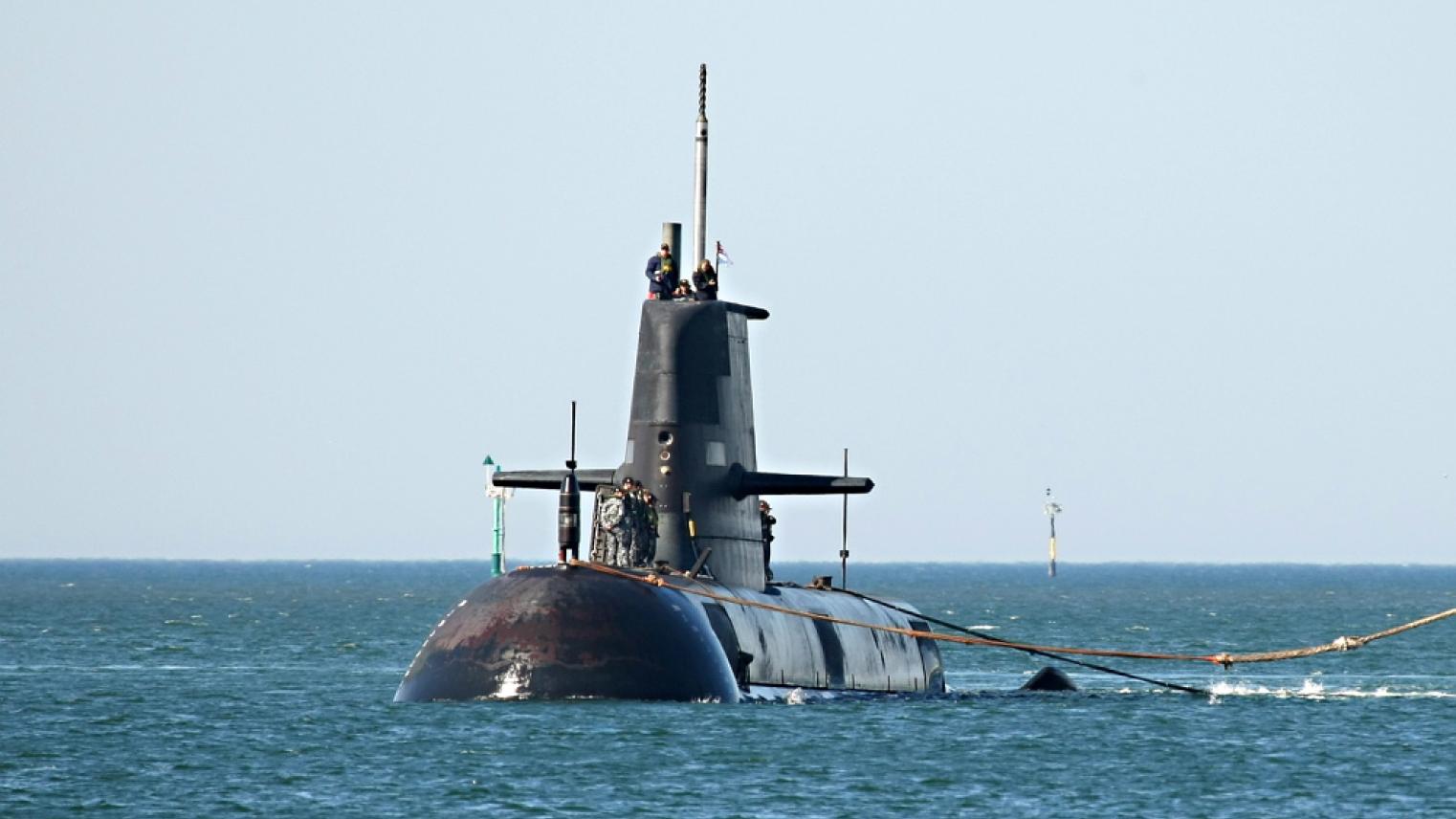Strategic necessity: a response to Hugh White on AUKUS

In his recent polemic against AUKUS (Australian Foreign Affairs 20), Hugh White has once again shown himself to be a pithy and persuasive debater. Not to mention prolific – one might observe that if we were able to harness White’s apparently limitless energy, we would not need nuclear propulsion for Australia’s submarines. But we must score White, like all debaters, on both style and substance. On the former, he is undoubtedly skilled, if sometimes partial (witness how a commentator who agrees with him is a “renowned ... defence guru”, while those who do not are mere “enthusiasts”). On the question of substance, readers must consider the following.
White is wrong when he states that “no government had seriously considered nuclear propulsion ... before the AUKUS plan was hatched”, a claim easily disproven by research published by Sea Power Centre Australia, which shows it was first considered as early as 1959, and many times subsequently.
The public record shows the option was still alive right up until 2019, when there was public discussion of the now- cancelled French Attack- class program transitioning to nuclear propulsion for the final few boats.
White is troublingly inconsistent when it suits his arguments. For example, he urges scepticism about Pillar 2, writing: “It is easy to talk up the military potential of exotic new technologies, but delivering real capabilities is a different matter.” Later, he proposes that “uncrewed submarine drones” – a future tech-nology covered by Pillar 2 – could replace our need for submarines and save the day. White as inadvertent advocate for the fruits of AUKUS Pillar 2 – who could have imagined?
Further, he states that the whole AUKUS plan may fail for the lack of just three crews of 120 Australian submariners, before arguing that his favoured plan of twenty- four conventionally powered boats – which would require 650 submariners, minimum – could be crewed “easily”. Surely he cannot have it both ways.
Perhaps most egregiously, White dismisses out of hand the government’s rare and significant disclosure that the practice of “snorting” (when conventional submarines approach the surface to run their diesel engines and charge their batteries) will become an unacceptable detection risk in the coming years. “[D]id the government suddenly learn, sometime between 2016 and 2021, of a dramatic and unexpected technological breakthrough in the detection of snorting conventional submarines?” he asks derisively, as if it could have happened any other way. He goes on to argue that this assessment should be disbelieved because other nations operating conventionally powered submarines have not apparently reacted; surely he is not suggesting that we ignore our own judgement and be the last to act?
A nuclear-powered submarine does not need to snort. But White argues that it is nuclear-powered submarines which will be detectable, citing a report published by the National Security College in 2020, which concluded that “the oceans are, in most circumstances, at least likely and, from some perspectives, very likely to become transparent by the 2050s”.The report’s own introduction described this prediction as “provocative” rather than definitive, and other reports published by the same institution as part of the same project had quite different conclusions.
But to apply his yardstick above: should we not wait for the evidence of all other nations abandoning nuclear propulsion – or submarines altogether – before we believe this?
White is on stronger ground describing the huge challenges AUKUS will face in coming years, from the likely costs to the fragility of the United Kingdom’s nuclear submarine enterprise and the uncertainties of the United States’ political system. But where he sees reasons to capitulate now – a recurring theme in his oeuvre – most on the frontlines are emboldened by the significant successes of the past two and a half years, from persuading the famously risk-averse US nuclear navy that we could be trusted, to the tortuous but ultimately successful passage of key enabling legislation through the US Congress last year.
Let us be clear. White’s prescription to return to square one and pursue another conventionally powered submarine fleet, which our own government believes would be detectable, is dangerous folly; even he concedes it “may prove impracticable”, such that “our submarine capability collapses”. It sounds eerily similar to our experience during World War II, when our nascent submarine fleet had lapsed due to cost, Sydney Harbour itself was penetrated by our enemy’s subs and lives were lost. Readers are entitled to conclude that White’s logic is flawed, that his alternative is no alternative at all, and that AUKUS – for all its challenges – is worth pursuing.
Justin Burke is a senior policy adviser at the National Security College, ANU, and a non- resident fellow at ISPK, Germany.
Source
This piece appeared in the latest issue of Australian Foreign Affairs - The Jakarta Option: Could Indonesia ever be an ally?



